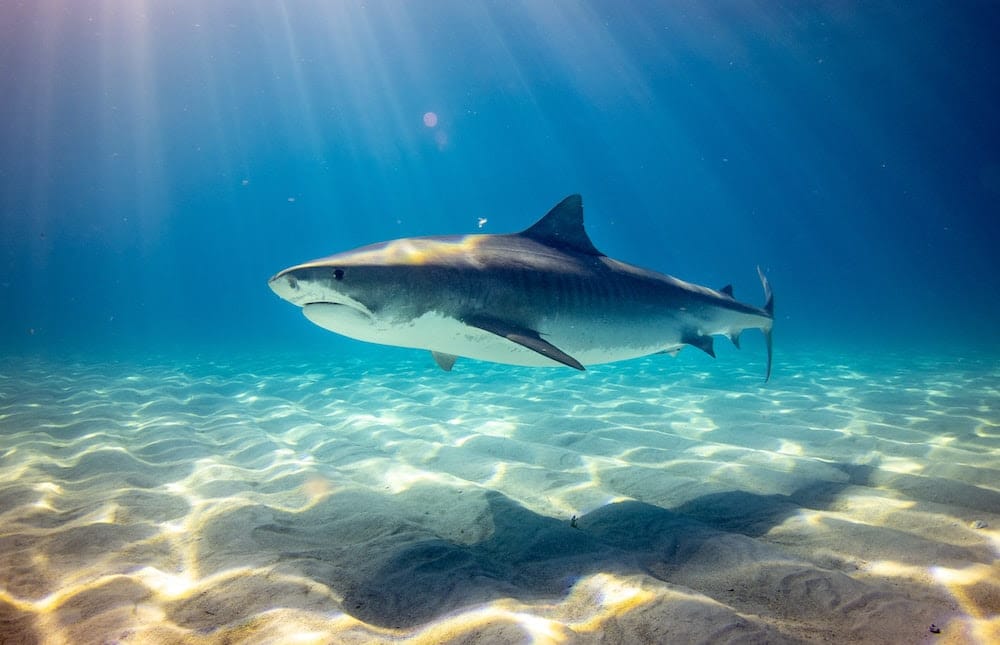
Since the dawn of time, sharks have been feared by mankind. They are presented as a veritable killing machine, awakening ancestral fears. Sharks dominate all other animals in this mythical status.
Greek mythology echoes this with Herodotus, in the Vᵉ century BC, describing shark attacks on castaways in the Mediterranean, and Aristotle (3rd century BC) accurately reports several aspects of shark biology, despite a lack of understanding of their feeding strategy.

The Romans also got in on the act, with Pliny the Elder referring to them as “squali” in his encyclopedia Natural History (circa 77 A.D.). Numerous engravings and paintings have depicted the shark as the embodiment of evil, whose attack could only lead to certain death. Accounts by sailors, fishermen and adventurers during the period of world conquest (14th to 19th centuries) bear witness to frightening carnivorous animals. The plank’s sentence was often depicted with shark fins swimming beneath the plank, waiting for a prisoner to be thrown to them.

Steven Spielberg’s 1975 film “Jaws” contributed enormously to the fear of sharks, and whole generations of young teenagers, after seeing this film, no longer dared to go swimming in the sea; it had become a panic fear, but totally unfounded, as humans are not part of their diet.
A person who dies as a result of a mosquito injury goes unnoticed, but if a shark attacks a man or woman, it’s front-page news all over the world, the media favoring this shark attack, there’s a study by the International Shark Attack which mentions that there are potentially over 1 million encounters between men and sharks a day, at 99. 9%, nothing happens and the man doesn’t even realize she’s standing next to a shark.
In fact, sharks are more of a victim than a danger. The figures are eloquent: between 63 and 275 million sharks are killed every year by industrial fishing, artisanal fishing, sport fishing and poaching.
This is a tragedy for the oceans’ ecosystems, as the presence of sharks attests to the health of these ecosystems.
The ISAF has shown that it is more likely to be killed by a falling coconut on a beach than to be bitten by a shark.






